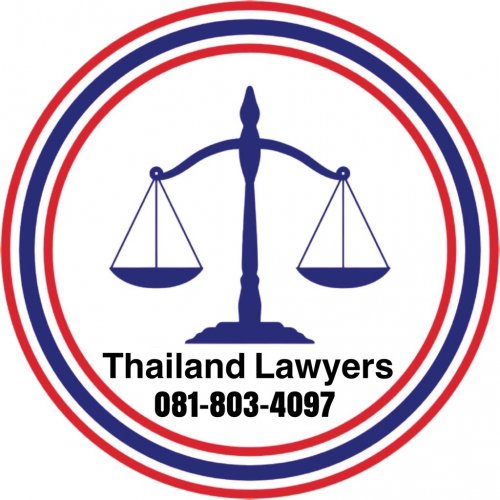Best Employment Benefits & Executive Compensation Lawyers in Pattaya
Share your needs with us, get contacted by law firms.
Free. Takes 2 min.
List of the best lawyers in Pattaya, Thailand
About Employment Benefits & Executive Compensation Law in Pattaya, Thailand
Employment Benefits & Executive Compensation law in Pattaya, Thailand, is a specialized field that focuses on the legal frameworks governing compensation packages, benefits, and incentives for employees, particularly those in executive roles. This branch of law ensures compliance with both Thai labor laws and international standards, addressing various aspects such as pensions, bonuses, health insurance, stock options, and other forms of non-wage compensation. As Pattaya continues to grow as a commercial hub within Thailand, legal expertise in employment benefits and executive compensation becomes crucial for employers and employees alike to safeguard their rights and fulfill their obligations.
Why You May Need a Lawyer
There are several situations where individuals and businesses in Pattaya may require legal assistance in employment benefits and executive compensation:
- Negotiating Compensation Packages: Individuals, especially at the executive level, might need guidance when negotiating terms to ensure fair and competitive compensation.
- Drafting and Reviewing Contracts: Ensuring that employment contracts adhere to Thai labor laws and do not infringe on employee rights is critical.
- Resolving Disputes: Disputes might arise between employers and employees regarding benefits, bonuses, or terms of compensation that require legal resolution.
- Compliance with Local Laws: Businesses must comply with local regulations affecting employee benefits, avoiding penalties and legal issues.
- Tax Implications: Understanding the tax implications of various forms of compensation to ensure compliance with Thai tax laws.
Local Laws Overview
In Pattaya, as in the rest of Thailand, several key facets of local employment laws impact benefits and executive compensation:
- Labor Protection Act: Establishes minimum standards for most employment terms, including wages, holidays, and severance payments.
- Social Security Act: Provides employees with social security benefits such as healthcare, unemployment, and pensions, which employers are obligated to contribute to.
- Provident Fund Act: Allows establishment of provident funds, requiring contributions from both employer and employee, to build retirement savings.
- Revenue Code: Governs the taxation of employee and executive compensation, shaping how various benefits are taxed.
- Data Privacy Laws: Protects employee data gathered as part of benefits and compensation administration.
Frequently Asked Questions
1. What is included in executive compensation packages?
Executive compensation packages typically include base salary, bonuses, stock options, retirement plans, and other benefits like health insurance or company cars.
2. Are there any mandatory benefits employers must provide?
Yes, Thai law requires employers to contribute to social security, provide paid annual leave, severance pay, and public holidays.
3. How are stock options taxed in Thailand?
Stock options are taxed as income at the time of exercise, and gains from selling shares are subject to capital gains tax.
4. Can an employer alter the benefits package of an executive unilaterally?
No, any alteration typically requires agreement from the executive unless a contract provision allows unilateral changes under specific conditions.
5. What legal recourse do I have if an employer fails to provide agreed benefits?
You may seek resolution through mediation, labor courts, or filing a complaint with the Department of Labor Protection and Welfare.
6. Are bonuses mandatory in Thailand?
Bonuses are not mandatory unless stipulated in an employment contract or company policy.
7. How does the Provident Fund benefit employees?
The Provident Fund is a retirement savings scheme with contributions from both employer and employee, providing financial security post-retirement.
8. Are there legal provisions for maternity and paternity leave?
Yes, Thai law stipulates specific durations and compensation for maternity and paternity leave that employers must adhere to.
9. What is the legal process for resolving disputes over executive compensation?
Disputes can often be addressed through negotiation, mediation, or labor courts if necessary.
10. Can expatriates receive the same benefits as Thai employees?
Expatriates often receive benefits tailored to their contracts, which may differ but can align with or exceed the standard employee benefits in Thailand.
Additional Resources
For further assistance and information, the following resources can be beneficial:
- Department of Labour Protection and Welfare: Offers guidance and handles complaints regarding employment laws and benefits.
- Social Security Office: Provides information on social security benefits and employer obligations.
- Thai Revenue Department: Offers guidelines on taxation related to employment and benefits.
- Thai Bar Association: A resource for finding qualified legal professionals in the area of employment law.
Next Steps
If you need legal assistance with employment benefits and executive compensation issues in Pattaya, consider the following steps:
- Consult with a Lawyer: Seek a legal professional experienced in Thai employment law to review your case and provide counsel.
- Gather Documentation: Collect all relevant employment contracts, correspondence, and benefit agreements for your lawyer to review.
- Explore Mediation: If applicable, consider mediation as a first step to resolve disputes amicably.
- Notify Relevant Authorities: Depending on the issue, informing the Labor Protection and Welfare Department or other relevant bodies might be necessary.
Lawzana helps you find the best lawyers and law firms in Pattaya through a curated and pre-screened list of qualified legal professionals. Our platform offers rankings and detailed profiles of attorneys and law firms, allowing you to compare based on practice areas, including Employment Benefits & Executive Compensation, experience, and client feedback.
Each profile includes a description of the firm's areas of practice, client reviews, team members and partners, year of establishment, spoken languages, office locations, contact information, social media presence, and any published articles or resources. Most firms on our platform speak English and are experienced in both local and international legal matters.
Get a quote from top-rated law firms in Pattaya, Thailand — quickly, securely, and without unnecessary hassle.
Disclaimer:
The information provided on this page is for general informational purposes only and does not constitute legal advice. While we strive to ensure the accuracy and relevance of the content, legal information may change over time, and interpretations of the law can vary. You should always consult with a qualified legal professional for advice specific to your situation.
We disclaim all liability for actions taken or not taken based on the content of this page. If you believe any information is incorrect or outdated, please contact us, and we will review and update it where appropriate.











